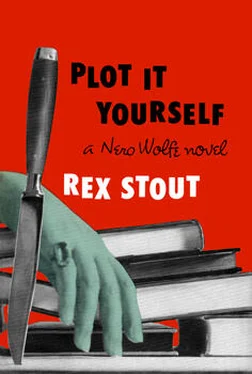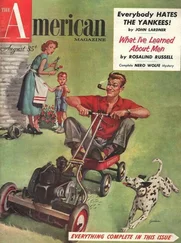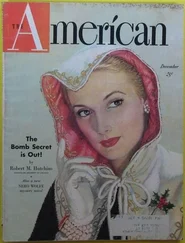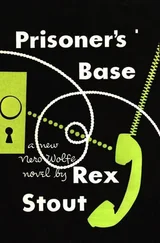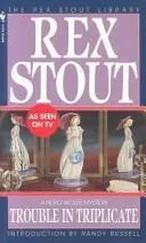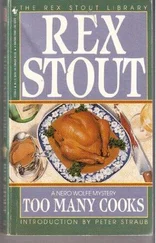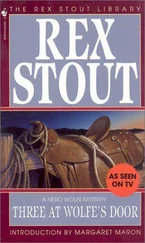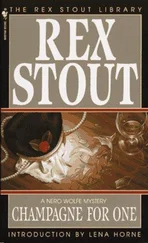Cramer removed the cigar. “You mean that, do you? You know who killed Simon Jacobs and Jane Ogilvy and Kenneth Rennert?”
Wolfe shook his head. “I haven’t said so. I know who wrote those stories and instigated the plagiarism claims. You’re investigating a series of murders; I’m investigating a series of frauds. I have my X and you have yours. True, the two Xs are the same person, but I need only expose a swindler; it will be your job to expose a murderer.”
“You know who he is?”
“Yes.”
“And you got it from what Alice Porter told you last night? And Goodwin has repeated all of it?”
“Yes. I have confirmed the hint she gave me.”
Cramer’s fingers had closed on the cigar, which was probably no longer fit for chewing, let alone smoking. “Okay. That’s not your kind of lie. What was the hint?”
“You have heard it.” Wolfe’s fingertips met at the peak of his middle mound. “No, Mr. Cramer. Surely that’s enough. I asked Mr. Goodwin to repeat that conversation, and I told you it contained a disclosure of the identity of X, only because I felt I owed you something and I don’t like to be in debt. I know what it cost you to tender me an apology. Even though you did it in desperation, because you’re stumped, and even though you immediately reverted to your customary manner, it took great will power and I appreciate it. So now we’re even. You know everything that I know, and it will be interesting to see whether you get your murderer first, or I my swindler.”
Cramer stuck the cigar in his mouth, learned too late that it was in shreds, jerked it out and threw it at my wastebasket, and missed by two feet.
A while back, when it took me nearly two hours to spot the screw Wolfe was going to use on Alice Porter, I remarked that you had probably seen it and thought me as dumb as they come, and now of course you are thinking that Cramer and I were both dumb, since you have almost certainly caught on to the hint Wolfe had got from Alice Porter and you now know who X was. But you’re reading it, and Cramer and I were in it. If you don’t believe that makes a big difference, try it once. Anyhow, even though you now know X’s name, you may be curious to see how Wolfe nailed him — or her. So I’ll go on.
When Cramer left, some ten minutes later, he wasn’t curious because there wasn’t room enough in him for it. He was too damn sore. When I stepped back into the office after going to the hall to see that he didn’t forget to cross the sill before he shut the door, the phone was ringing and I went and got it. It was Saul Panzer. He asked for Wolfe, and Wolfe, lifting his receiver, told me, “You might catch Miss Ballard before she goes to lunch.”
I may not be much at hints, but I got that one. I departed.
Of all the thousands of ways of getting a credit mart from a woman, young or old, high on the list is to take her to lunch at Rusterman’s, the restaurant that was owned and operated by Marko Vukcic when he died. Since Wolfe is still the trustee of the estate, there is always a table for me, and when Cora Ballard and I edged through the crowd to the green rope and Felix caught sight of me, he led us to the banquette at the left wall. As we sat and took our napkins Cora Ballard said, “If you’re trying to impress me you’re doing fine.”
I’m all for Wolfe’s rule not to discuss business at meals, but that time it couldn’t be helped because she had to be back at her office by two-thirty for an appointment. So after we had taken a sip of our cocktails I said I supposed she knew a good deal about all of the NAAD members. No, she said, not all of them. Many of them lived in other parts of the country, and of those in the metropolitan area some were active in NAAD affairs and some weren’t. How well did she know Alice Porter? Fairly well; she had always come to craft meetings until recently, and in 1954, when Best and Green had decided to publish her book, The Moth That Ate Peanuts , she had visited the NAAD office several times for advice on the contract.
Time out to get started on our ham timbales.
What I was after, I said, was a document that we had reason to believe Alice Porter had left in somebody’s care. Did members deposit important documents with the NAAD for safe-keeping? No, the association had no facilities for that kind of service. Did she have any idea with whom or where Alice Porter might leave something very important — for instance, an envelope to be opened if and when she died?
She had started a loaded fork to her mouth but stopped it. “I see,” she said. “That might be pretty smart, if — What’s in the envelope?”
“I don’t know. I don’t even know there is one. Detectives spend most of their time looking for things that don’t exist. Mr. Wolfe thought it was possible she had left it with you.”
“She didn’t. If we started doing things like that for members we’d have to have a vault. But I might have some ideas. Let’s see.... Alice Porter.” She opened her mouth for the forkload.
She had six ideas:
1. Alice Porter’s safe-deposit box. If she had one.
2. Mr. Arnold Green of Best and Green, who had published her book. He was one of the few publishers who liked to do favors for authors, even one whose book had been a flop.
3. Her father and mother, who lived somewhere on the West Coast, Miss Ballard thought in Oregon.
4. Her agent, if she still had one. Lyle Bascomb had taken her on after her book had been published, but he might have dropped her by now.
5. The woman who ran Collander House on West 82nd Street, the hive-home for girls and women who couldn’t afford anything fancy, where Alice Porter had lived for several years. Her name was Garvin, Mrs. Something Garvin. One of the girls in the NAAD office was living there now. She was the kind of woman anybody would trust with anything.
6. The lawyer who handled her suit against Ellen Sturdevant. Cora Ballard couldn’t remember his name, but I did, from the pile of paper I had waded through at the office.
Over the years I have chased a lot of wild geese, but that was about the wildest, asking a bunch of strangers about something that maybe didn’t exist, and if it did maybe they had never heard of it, and if one of them had it why should he tell me? So I spent five hours at it. I tackled Lyle Bascomb, the agent, first, because his office was only a short walk from Rusterman’s. He was out to lunch and would be back any minute. So I waited fifty minutes. He returned from lunch at 3:33, and his eyes were having a little trouble focusing. He had to think a minute before he could remember who Alice Porter was. Oh yes, that one. He had taken her on when she had a book published, but had dropped her when she made that plagiarism claim. I gathered from his tone that anyone who made a plagiarism claim was a louse.
At the lawyer’s office I had to wait only thirty minutes, which was an improvement. He would be glad to help. When a lawyer says he will be glad to help he means that he will be glad to relieve you of any information you may have that he could ever possibly use, and at the same time will carefully refrain from burdening you with any information that you don’t already have. That one wasn’t even going to admit that he had ever heard of a woman named Alice Porter until I told him I had read three letters signed by him referring to her as his client. I finally pried it out of him that he hadn’t seen her or communicated with her for some time. Two years? Three? He couldn’t say definitely, but an extended period. As for the information he relieved me of, I will only say that I put him under no obligation.
It was after five o’clock when I arrived at the office of Best and Green, so it was a tossup whether I would catch him, but I did. The receptionist halted a lipstick operation long enough to tell me that Mr. Green was in conference, and I was asking her if she had any idea how long the conference would last, when a man appeared from within and headed for the door, and she called to him, “Mr. Green, someone to see you,” and I went for him, pronouncing my name, and he said, “I’m making a train,” and loped out. So, as I say, I caught him.
Читать дальше
